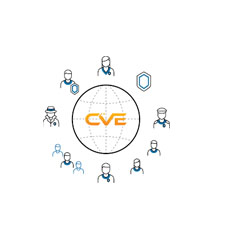
Description
Windows Secure Channel Denial of Service Vulnerability
Base Score: 7.5 HIGH
https://msrc.microsoft.com/update-guide/vulnerability/CVE-2023-21819
Description
Windows Distributed File System (DFS) Remote Code Execution Vulnerability
Base Score: 7.4 HIGH
https://msrc.microsoft.com/update-guide/vulnerability/CVE-2023-21820
Description
Windows Graphics Component Elevation of Privilege Vulnerability
Base Score: 7.8 HIGH
https://msrc.microsoft.com/update-guide/vulnerability/CVE-2023-21822
Description
Microsoft Edge (Chromium-based) Remote Code Execution Vulnerability
Base Score: 8.3 HIGH
https://msrc.microsoft.com/update-guide/vulnerability/CVE-2023-23374
Description
Windows Secure Channel Denial of Service Vulnerability
Base Score: 7.5 HIGH
https://msrc.microsoft.com/update-guide/vulnerability/CVE-2023-21818
Description
Windows Kerberos Elevation of Privilege Vulnerability
Base Score: 7.8 HIGH
https://msrc.microsoft.com/update-guide/vulnerability/CVE-2023-21817
Description
Windows Active Directory Domain Services API Denial of Service Vulnerability
Base Score: 7.5 HIGH
https://msrc.microsoft.com/update-guide/vulnerability/CVE-2023-21816
Description
Windows Secure Channel Denial of Service Vulnerability
Base Score: 7.5 HIGH
https://msrc.microsoft.com/update-guide/vulnerability/CVE-2023-21813
Description
Windows Common Log File System Driver Elevation of Privilege Vulnerability
Base Score: 7.8 HIGH
https://msrc.microsoft.com/update-guide/vulnerability/CVE-2023-21812
Description
Windows iSCSI Service Denial of Service Vulnerability
Base Score: 7.5 HIGH
https://msrc.microsoft.com/update-guide/vulnerability/CVE-2023-21811
CVE-2023-21801 Description Microsoft PostScript Printer Driver Remote Code Execution Vulnerability Base Score: 7.8 HIGH https://msrc.microsoft.com/update-guide/vulnerability/CVE-2023-21801 CVE-2023-21777 Description Azure App Service on Azure Stack Hub Elevation of Privilege Vulnerability Base Score: 8.7 HIGH https://msrc.microsoft.com/update-guide/vulnerability/CVE-2023-21777 CVE-2023-21718 Description Microsoft SQL ODBC Driver Remote Code Execution Vulnerability Base Score: 7.8 HIGH https://msrc.microsoft.com/update-guide/vulnerability/CVE-2023-21718 CVE-2023-21707 Description Microsoft Exchange Server Remote […]
CVE-2023-23397 Description:Microsoft Outlook Elevation of Privilege Vulnerability CNA: Microsoft CorporationBase Score: 9.8 CRITICAL Vector: CVSS:3.1/AV:N/AC:L/PR:N/UI:N/S:U/C:H/I:H/A:H https://msrc.microsoft.com/update-guide/vulnerability/CVE-2023-23397
CVE-2023-21792 Description 3D Builder Remote Code Execution Vulnerability. This CVE ID is unique from CVE-2023-21780, CVE-2023-21781, CVE-2023-21782, CVE-2023-21783, CVE-2023-21784, CVE-2023-21785, CVE-2023-21786, CVE-2023-21787, CVE-2023-21788, CVE-2023-21789, CVE-2023-21790, CVE-2023-21791, CVE-2023-21793. Base Score: 7.8 HIGH https://portal.msrc.microsoft.com/en-US/security-guidance/advisory/CVE-2023-21792 ___________________________________________________ CVE-2023-21793 Description 3D Builder Remote Code Execution Vulnerability. This CVE ID is unique from CVE-2023-21780, CVE-2023-21781, CVE-2023-21782, CVE-2023-21783, CVE-2023-21784, CVE-2023-21785, CVE-2023-21786, CVE-2023-21787, […]
Leave a Reply